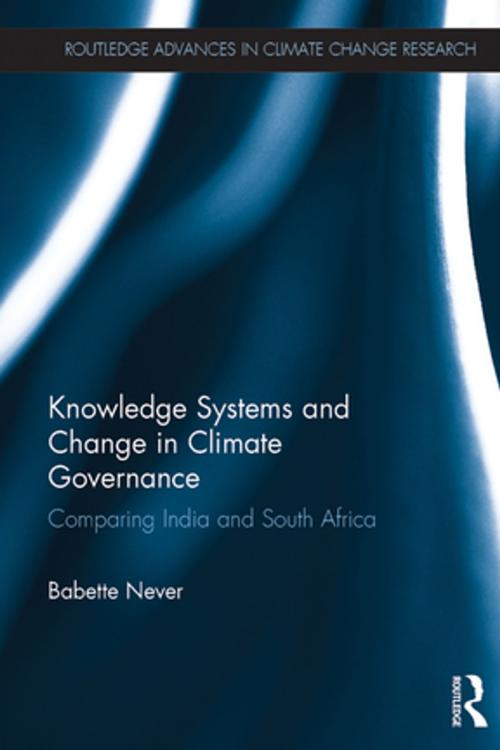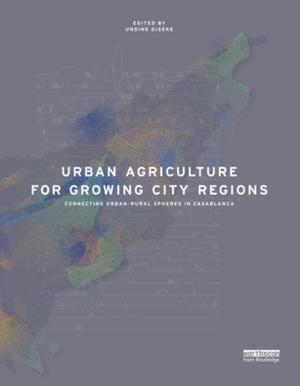Knowledge Systems and Change in Climate Governance
Comparing India and South Africa
Business & Finance, Economics, Sustainable Development, Nonfiction, Social & Cultural Studies, Political Science, Government, Public Policy| Author: | Babette Never | ISBN: | 9781317750888 |
| Publisher: | Taylor and Francis | Publication: | June 27, 2014 |
| Imprint: | Routledge | Language: | English |
| Author: | Babette Never |
| ISBN: | 9781317750888 |
| Publisher: | Taylor and Francis |
| Publication: | June 27, 2014 |
| Imprint: | Routledge |
| Language: | English |
The success of international efforts to manage climate change depends on the participation of emerging economies. This book uses a comparative study of two of the most important, India and South Africa, to reveal new insights into managing climate change on a global scale.
The book provides a unique in-depth analysis of how these two countries are dealing with climate change at both national and province levels, from India’s advances in solar and wind energy development to South Africa’s efforts to introduce a carbon tax. Using the innovative theoretical framework of climate knowledge systems, it explores how people in India and South Africa engage with one other, learn and act by forming communities of practice. The book identifies the drivers and barriers of climate governance, showing how different forms of scientific, technological, normative and pragmatic knowledge can aid climate governance and analysing how the underlying mind-set that guides climate action in these countries is changing.
This book is a valuable resource for students and scholars of environmental policy, politics and governance, as well as comparative politics, climate change and sustainable development.
The success of international efforts to manage climate change depends on the participation of emerging economies. This book uses a comparative study of two of the most important, India and South Africa, to reveal new insights into managing climate change on a global scale.
The book provides a unique in-depth analysis of how these two countries are dealing with climate change at both national and province levels, from India’s advances in solar and wind energy development to South Africa’s efforts to introduce a carbon tax. Using the innovative theoretical framework of climate knowledge systems, it explores how people in India and South Africa engage with one other, learn and act by forming communities of practice. The book identifies the drivers and barriers of climate governance, showing how different forms of scientific, technological, normative and pragmatic knowledge can aid climate governance and analysing how the underlying mind-set that guides climate action in these countries is changing.
This book is a valuable resource for students and scholars of environmental policy, politics and governance, as well as comparative politics, climate change and sustainable development.















